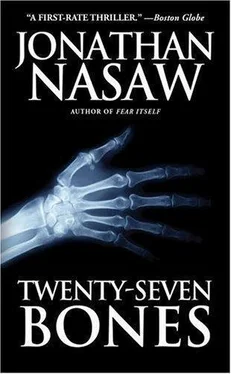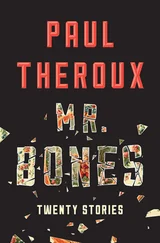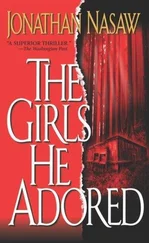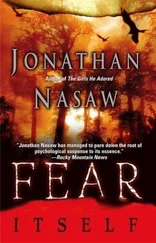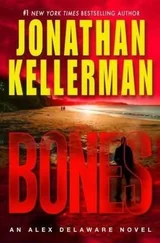Jonathan Nasaw - Twenty-Seven Bones
Здесь есть возможность читать онлайн «Jonathan Nasaw - Twenty-Seven Bones» весь текст электронной книги совершенно бесплатно (целиком полную версию без сокращений). В некоторых случаях можно слушать аудио, скачать через торрент в формате fb2 и присутствует краткое содержание. Жанр: Триллер, на английском языке. Описание произведения, (предисловие) а так же отзывы посетителей доступны на портале библиотеки ЛибКат.
- Название:Twenty-Seven Bones
- Автор:
- Жанр:
- Год:неизвестен
- ISBN:нет данных
- Рейтинг книги:4 / 5. Голосов: 1
-
Избранное:Добавить в избранное
- Отзывы:
-
Ваша оценка:
- 80
- 1
- 2
- 3
- 4
- 5
Twenty-Seven Bones: краткое содержание, описание и аннотация
Предлагаем к чтению аннотацию, описание, краткое содержание или предисловие (зависит от того, что написал сам автор книги «Twenty-Seven Bones»). Если вы не нашли необходимую информацию о книге — напишите в комментариях, мы постараемся отыскать её.
Twenty-Seven Bones — читать онлайн бесплатно полную книгу (весь текст) целиком
Ниже представлен текст книги, разбитый по страницам. Система сохранения места последней прочитанной страницы, позволяет с удобством читать онлайн бесплатно книгу «Twenty-Seven Bones», без необходимости каждый раз заново искать на чём Вы остановились. Поставьте закладку, и сможете в любой момент перейти на страницу, на которой закончили чтение.
Интервал:
Закладка:
How silly of her-they had of course left the machete in the lime grove, in the dead man’s hand. But a pocketknife? Was he planning to saw her hand off with a pocketknife?
Or maybe he was only trying to frighten her-maybe it was all just a sick joke. “Bennie, please. Bennie, you’re making a mistake.”
He tested the knife’s edge against the callused tissue at the base of his palm, nodded in satisfaction, tossed away the chunk of rock upon which he’d been sharpening the blade.
“Bennie, we can get out of here, we can go on, just you and me, the two of us. Apgard will help us. I’ll take you back to Nias.”
He tested the knotted brassiere to make sure it would hold, realized there was too much play in the elastic. He tightened the knot, tested it again.
She closed her eyes again. “Just don’t cut it off. Not with a knife, Bennie, please, not with a-”
Led by the Jeep Cherokee, the procession of vehicles-cop cars, ambulances, Miami Mark’s flatbed sheep truck, a fire truck, the fire department’s disaster van-followed the Circle Road east, north, west, through the rain. As they neared Smuggler’s Cove, Dawson had Chief Coffee turn on the Cherokee’s searchlight and aim it to the left. Once she’d spotted the divi-divi that marked the turn, all he had to do was hang the left and follow the deep ruts the Land Rover had dug, coming and going.
The four-wheel-drive Cherokee made it to the end of the track while the other vehicles were still slipping and sliding in the mud. The occupants of the least successful off-roaders gave it up, nosed their vehicles off the track, helped push the more promising vehicles along, jumped on hoods and roofs and trunks and hung on for dear life, whipped at by overhanging vines and branches, until it was time to jump off and push again.
The lead party didn’t wait for them. Coffee, Dawson, Holly, and Dawn set off uphill. Marley waited behind to direct the late-comers. The chief carried Dawn most of the way. The path was easy to make out, having been hacked and trodden recently, but difficult to traverse. Mudslides seemed a definite possibility. The Chief sent Dawn back with Holly; he and Dawson continued on alone, their rubber boots caked and heavy with mud.
Julian, closer to sixty than he was to fifty, stopped for a breather, standing doubled over in the middle of the trail, his hands on his knees. Dawson had been hiking this forest for years-she slogged on until the spreading trunk of the elephant’s ear tree rose gray and forbidding by the side of the trail. From here, shining her lantern up the hill, she could see the raw slash where a portion of the hillside had collapsed. Under there, she told herself-he’s under there someplace.
Like a brave little girl at the dentist’s office, Emily did not scream. She gasped, then sucked in a long, hissing breath as Bennie drew the blade of the Swiss Army knife across her wrist, pressing hard, digging deep, severing flesh, tendon, muscle, artery, until the blood spurted and the blade bit into bone. She opened her eyes, saw him standing over her. She turned her head to the right. He wasn’t going to saw the hand off after all. That was good, she thought, as he grabbed her chin firmly in one hand, turned her face up to his again, pinched her nostrils together with the other hand.
Too soon, she wanted to tell him, as he brought his face down to hers, his mouth opening wider, wider. Because Emily knew, from the strength and rhythm of the beating of her heart and the throbbing in her arm and the pulsing of her blood, just how long it would take her to die.
She closed her eyes, turning her attention not to the pain but only to the rhythm and strength of the throbbing, with such fierce concentration that her whole being dissolved into it. There was mercy in that: for the last few moments of her life, until the little man standing over sucked down her dying breath, the naked woman on the cross was no longer Emily-mind, Emily-body, or even Emily-spirit, but only that throbbing pulse, that slowly beating heart, that hot dark rush of blood.
6
Pender awoke in the darkest dark he’d ever known. Impenetrable blackness-he’d left the flashlight on and the batteries had worn down. He couldn’t see his nose. He’d have felt disembodied if it weren’t for the throbbing in his head.
He forced himself to move slowly, changing the batteries with painstaking deliberation, to prove to himself that he was in charge of…something…himself, his mounting panic, something. But Pender knew, even as the beam from the flashlight did its narrow best to light up the cave, that he was in charge of nothing at that point, least of all his life.
Lying still, conserving oxygen, looking up at the hundreds of tiny, curved stalactites hanging from the ceiling, an old picture book memory surfaced for Pender: somebody sowed dragon’s teeth in the ground, and they sprang up as warriors.
He rolled onto his side, went back to reading the manuscript beside his makeshift pallet. The adventures of P and E and B. It didn’t have a title. Call it The Autobiography of a Serial Killer, thought Pender. Or was that already taken?
And what a motive: the victim’s dying breath. Pender was less surprised than most would have been. He’d consulted on the Richard Chase investigation. Chase, the so-called Vampire of Sacramento, killed for blood. Pender had also worked on cases where people killed for thrills, for lust, for body parts to add to their collections. This was a new one to him, but it was a difference in degree, not in kind. In Pender’s opinion, in the long run serial killers killed for the sake of killing, they enjoyed holding the power of life and death, and the rest was window dressing.
Before falling asleep, Pender had read up to the part where the trio of psychos were in California, city unspecified, experimenting to find the most efficient way to “dispatch” their “subjects.” (Considering the topic, the prose of the unnamed author-presumably Phil-was surprisingly bloodless, except during the frequent sex scenes.)
Now he read how they’d tried piercing the heart, only to breathe in bloody flume. Internal injuries proved unpredictable. Some died on the spot, others lived hours and might have lived days, if permitted. Then B told them (in pidgin English, dreadfully rendered by the author) that in the old days, after the Dutch had outlawed head-hunting and some of the villages on Nias had switched over to taking the right hands of their enemies, a captured warrior’s hand was often lopped off while he was still alive, and that death invariably resulted within a predictable period of time: two to three minutes.
And the glee, the pure bubbling elation of P and E when they put B’s hypothesis to the test and found he was right, struck Pender as more purely, repulsively pornographic than all the sex scenes that had preceded it, even the ones that didn’t have a murder for a centerpiece. P was as boastful of the way E developed the ability to predict the precise moment of death as he was of her “overdeveloped female attributes,” to which he couldn’t help referring every two or three pages.
By the time the manuscript ended, with a secondhand description of what sounded convincingly like Fran Bendt’s murder at the hands of Lewis Apgard, Pender had reached the boiling point. He didn’t always hate the serial killers he pursued. Sometimes he felt sorry for them, especially the schizophrenics. They couldn’t help themselves, couldn’t have stopped themselves if they’d wanted to. But he hated this batch with a white-hot passion. And in a way, Apgard was the most revolting of the four. The other three were clearly psychopaths, but if the manuscript was to be believed, Apgard had his wife killed out of sheer greed, of which the Bendt murder was merely an offshoot.
Читать дальшеИнтервал:
Закладка:
Похожие книги на «Twenty-Seven Bones»
Представляем Вашему вниманию похожие книги на «Twenty-Seven Bones» списком для выбора. Мы отобрали схожую по названию и смыслу литературу в надежде предоставить читателям больше вариантов отыскать новые, интересные, ещё непрочитанные произведения.
Обсуждение, отзывы о книге «Twenty-Seven Bones» и просто собственные мнения читателей. Оставьте ваши комментарии, напишите, что Вы думаете о произведении, его смысле или главных героях. Укажите что конкретно понравилось, а что нет, и почему Вы так считаете.
